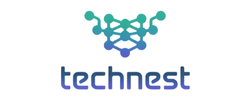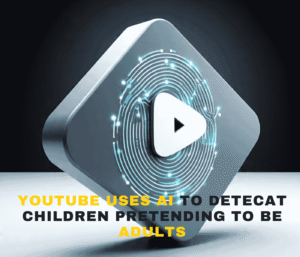Artificial Intelligence (AI) chatbots are no longer futuristic — they are now part of our daily life. From answering questions to writing content and even helping with coding, AI is changing the way we work.
Two AI tools that have recently gained attention are ChatGPT and DeepSeek. Both are designed to assist with writing, brainstorming, and problem-solving, but my personal experience has shown that ChatGPT offers more reliability, flexibility, and quality compared to DeepSeek.
In this article, I will compare ChatGPT and DeepSeek in detail, share my own experiences, and explain which one is better for different types of users.
What is ChatGPT?
ChatGPT is an AI chatbot developed by OpenAI, one of the leading companies in artificial intelligence. It was first introduced in late 2022 and quickly became popular for its ability to understand natural language and provide human-like responses.
ChatGPT is trained on massive amounts of data and can handle a wide range of tasks, including:
- Writing long-form articles and blog posts
- Summarizing large documents
- Helping students with study notes
- Assisting developers with code and debugging
- Generating documents (Word, PDF, Excel, etc.)
- Translating text and explaining complex topics in simple words
It comes in different versions:
- Free plan (based on GPT-3.5)
- Paid plan (ChatGPT Plus) which gives access to GPT-4 or GPT-4.5, offering more advanced and accurate responses.
What is DeepSeek?
DeepSeek is another AI chatbot that focuses on fast and lightweight responses. It is newer compared to ChatGPT and aims to compete in the same space by offering quick text generation.
While DeepSeek can handle basic writing and answering questions, in my personal use, it felt less detailed and polished compared to ChatGPT.
DeepSeek can be useful for:
- Quick brainstorming ideas
- Short explanations
- Light content creation
- Basic conversations
However, it does not yet match ChatGPT in depth, accuracy, or versatility.
ChatGPT vs DeepSeek: Feature Comparison
Here’s a side-by-side comparison of the main features:
| Feature | ChatGPT | DeepSeek |
|---|---|---|
| Response Quality | Detailed, reliable, professional | Simple, often requires editing |
| Content Creation | Can produce full blog posts, SEO content, documents | Good for short text, but lacks depth |
| Flexibility | Supports coding, summaries, translations, documents | Limited mostly to plain text |
| Ease of Use | Beginner-friendly, multiple tools in one | Simple but less powerful |
| Reliability | Consistently high-quality output | Sometimes repetitive or vague |
| Best For | Bloggers, students, professionals, coders | Quick notes, casual users |
Quality of Responses
One of the biggest differences I noticed is response quality.
- ChatGPT: The responses are structured, detailed, and closer to professional writing. If you ask for a blog post, ChatGPT can generate an entire draft that is SEO-friendly and ready for publishing after minor editing.
- DeepSeek: The responses are shorter and sometimes lack flow. They may work for casual use but not for professional-level writing.
👉 Example: When I asked both tools to create a blog post on a tech topic, ChatGPT gave me a complete draft with headings, subheadings, and keywords, while DeepSeek provided a short article that needed significant rewriting.
Options and Flexibility
Another key difference is flexibility.
- ChatGPT can:
- Write blog posts, essays, and emails
- Generate documents in different formats (PDF, Word, Excel, etc.)
- Help with coding in multiple programming languages
- Explain complex topics in simple terms
- Provide SEO-friendly suggestions for content creators
- DeepSeek mainly focuses on generating short text responses. It does not have the same document production or advanced coding support that ChatGPT offers.
Reliability
When it comes to reliability, ChatGPT has consistently given me better results. Whether I need a long blog post, a detailed guide, or a professional summary, I can trust ChatGPT to deliver something useful.
With DeepSeek, the results were less predictable. Sometimes it provided helpful content, but other times the answers were repetitive, lacked structure, or needed heavy editing before use.
Real-World Scenarios
To make this comparison more practical, let’s look at some real-world situations:
1. For Bloggers and Content Creators
- ChatGPT: Can produce complete blog posts with headings, SEO optimization, and readability. Saves time and effort.
- DeepSeek: Only useful for short text or brainstorming, not for full content creation.
2. For Students
- ChatGPT: Can summarize books, explain topics in simple language, and even create study notes.
- DeepSeek: Good for short answers, but not detailed enough for research or assignments.
3. For Professionals
- ChatGPT: Helps draft emails, reports, and professional documents.
- DeepSeek: Limited in business use cases.
4. For Developers
- ChatGPT: Provides coding help, bug fixing, and explanations of code.
- DeepSeek: Lacks strong coding support.
Pros and Cons of Each Tool
ChatGPT
✅ Pros:
- High-quality, detailed responses
- Wide range of features (content, coding, documents)
- Reliable for professional use
- Beginner-friendly
❌ Cons:
- Advanced version requires a paid subscription
- Sometimes responses can be too long or detailed
DeepSeek
✅ Pros:
- Free and simple to use
- Good for short answers or brainstorming
- Lightweight and fast
❌ Cons:
- Limited features
- Lower quality responses
- Not suitable for professional-level content
My Personal Experience
When I first tested DeepSeek, I was curious to see if it could match ChatGPT. However, I quickly noticed that the content it generated was not the same quality.
For example, when I asked for a 1500-word blog post, DeepSeek gave me less than 500 words with repeated sentences. On the other hand, ChatGPT created a complete draft with SEO elements, which I could easily refine and publish.
This made me realize that ChatGPT is not just a chatbot — it’s a complete assistant for bloggers, students, and professionals. DeepSeek may work for simple queries, but for serious work, ChatGPT is far ahead.
Which One Should You Choose?
It depends on your needs:
- If you are a blogger, student, or professional who needs detailed, reliable, and structured content → ChatGPT is the best choice.
- If you just want quick answers or brainstorming ideas without worrying about quality → DeepSeek can be useful.
Final Thoughts
Both ChatGPT and DeepSeek are part of the growing AI revolution. They can save time, provide information, and make life easier. But when it comes to quality, reliability, and versatility, my personal experience shows that ChatGPT is far more powerful and useful than DeepSeek.
DeepSeek may improve in the future, but right now, ChatGPT is the clear winner for anyone who wants professional, high-quality, and multi-purpose assistance.




Leave a Reply